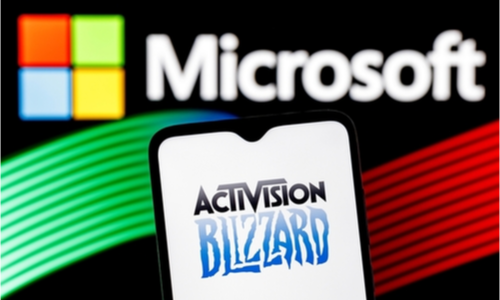
Microsoft’s historic $69 billion purchase of video game publisher Activision Blizzard is set to close after the United States Supreme Court denied an 11th-hour bid to pause the acquisition.
Tuesday’s decision marks the most recent in a series of legal challenges since the proposed purchase was announced in January of 2021. Just last week, the Federal Trade Commission sought to challenge the deal but the request was denied by a federal appeals court judge in San Francisco, reported Variety.
The group of video gamers that sought the emergency injunction in the Supreme Court had asserted that Microsoft’s resulting power in the game industry would result in consumer harms. Joseph Alioto, the lawyer representing the group, said in their application to the Supreme Court, “The merger between Microsoft and Activision would be one of, if not the largest technology mergers in history, at a time when concentration among technology companies is already threatening the competitive balance of our economy and even our political systems.”
Read more: London Tribunal Pauses Microsoft’s Appeal In Activision Blizzard Takeover
When District Court Judge Jacqueline Scott Corley denied the FTC’s motion to stop the deal, she cited in part Microsoft’s commitment to keep Call of Duty on PlayStation for 10 years, on parity with Xbox, and that Microsoft inked an agreement with Nintendo to bring the game to Nintendo Switch. The Judge found that “the FTC has not shown a likelihood it will prevail” on its claim that the merger “may substantially lessen competition,” she wrote.
The deal has encountered opposition in the U.K., as well, where the country’s Competition and Markets Authority (CMA) issued a decision last year to stop the Microsoft-Activision merger on grounds that it is anti-competitive. Last week, Microsoft and the CMA said they were pausing their legal fight over the deal; subsequently, however, the CMA said any modification to Microsoft’s deal for Activision Blizzard could lead to a new investigation.
In spite of the Supreme Court’s decision, the battle over the deal continues. On Monday, a group of Republican lawmakers sent a letter to the FTC, telling them to back off their efforts to stop the purchase and calling it a “pro-competitive transaction.”
If Microsoft’s acquisition of Activision Blizzard is ultimately completed, Microsoft will be plugged into the entire video game industry. According to the filing by the gamers, “the concentration in the video game industry is long passed the incipiency stage, as Microsoft and other giants in the industry have acquired numerous video game competitors over the last several years,” citing Microsoft’s 2021 $7.5 billion acquisition of another developer, ZeniMax.
Whether the deal will close or not is yet to be seen. If it does fail, Microsoft is on the hook to Activision for a $3 billion break-up fee. As of now, however, the deadline for the deal to close is expected to pass with no extension.
Time will tell whether the FTC finds alternative avenues to block this anti-competitive deal or if it will ultimately pass with Microsoft becoming the dominant force in the gaming industry. With the Supreme Court’s denial, the question now is: how will the FTC proceed?
Source: Variety
Featured News
Big Tech Braces for Potential Changes Under a Second Trump Presidency
Nov 6, 2024 by
CPI
Trump’s Potential Shift in US Antitrust Policy Raises Questions for Big Tech and Mergers
Nov 6, 2024 by
CPI
EU Set to Fine Apple in First Major Enforcement of Digital Markets Act
Nov 5, 2024 by
CPI
Six Indicted in Federal Bid-Rigging Schemes Involving Government IT Contracts
Nov 5, 2024 by
CPI
Ireland Secures First €3 Billion Apple Tax Payment, Boosting Exchequer Funds
Nov 5, 2024 by
CPI
Antitrust Mix by CPI
Antitrust Chronicle® – Remedies Revisited
Oct 30, 2024 by
CPI
Fixing the Fix: Updating Policy on Merger Remedies
Oct 30, 2024 by
CPI
Methodology Matters: The 2017 FTC Remedies Study
Oct 30, 2024 by
CPI
U.S. v. AT&T: Five Lessons for Vertical Merger Enforcement
Oct 30, 2024 by
CPI
The Search for Antitrust Remedies in Tech Leads Beyond Antitrust
Oct 30, 2024 by
CPI